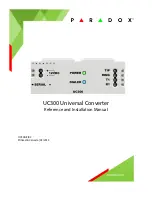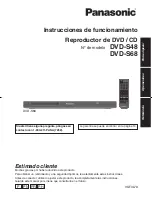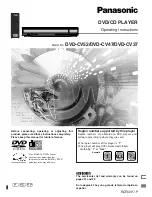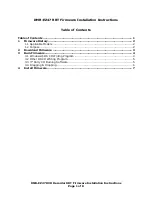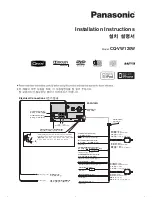
DMR |
1
1
DMR Introduction &
Overview
Introduction
Welcome to the user’s guide for the MediaPOINTE®
DMR. The DMR is one of the easiest to use, cost-
effective and reliable archiving and streaming products
on the market today. It can archive important audio,
video, and graphical data while simultaneously
transmitting it anywhere on your network.
This user’s guide describes how to set up and use the
DMR to record and transport graphics, video and audio
content over IP networks. As with all MediaPOINTE AV-
over-IP products, you can control the DMR by different
methods. These methods include: Web Portal interface,
remote control, contact closure, RS-232 serial port,
Telnet, or from the convenient front keypad.
This guide is written for units running 4.0 software.
If your DMR is operating on a different version of
software, some capabilities and screenshots may be
different.
Key Features
The DMR may be used in a variety of situations for live
communication and collaboration, including:
• Archive media content from multiple independent
sources.
• Share visual information, designs, and concepts with
dispersed groups of people to gather input during a
video conference.
• Stream important videoconferences to other locations
such as overflow rooms or remote conference locations
over your corporate network.
• Conduct customer or employee training across vast
geographical areas.
• Discuss research, engineering, architecture, product
design, or process analysis when the participants are
not able to meet in one central location.
• Access a centralized data bank of expertise from a
field location.
How It Works (Method of Operation)
The DMR can archive and stream video and audio
media. The DMR accepts S-Video, composite video, and
unbalanced line level stereo audio inputs. The selected
input source along with the associated audio is captured
into a file which can be simultaneously streamed live
over your network during the archival process.
Users can select from several configurable parameters
(profiles) for capturing and subsequent playback of the
recorded material. These profiles are fully configurable,
allowing the user to specify the input source, capture
resolution, bit and frame rates.
The archived recordings are stored on the DMR’s hard
drive. The recorded file can then be viewed on your PC
or replayed directly from the DMR on a local monitor.
The content can also be copied to a USB memory stick,
burned to DVD-R, DVD+R or CD-R disk, downloaded to a
PC, attached to an e-mail, or automatically transferred
(FTP) to a server after the file has been indexed.
The DMR records content in standard MPEG-4 ASP, which
can be played on a variety of desktop client players
including QuickTime. It can record content in Windows
Media Format that can be played in Windows Media
Player.
Содержание DMR
Страница 1: ...An Advanced Media Design Technology Digital Media Recorder User Manual DMR ...
Страница 14: ... DMR User Manual 4 0 August 2009 ...
Страница 15: ...DMR ...

























